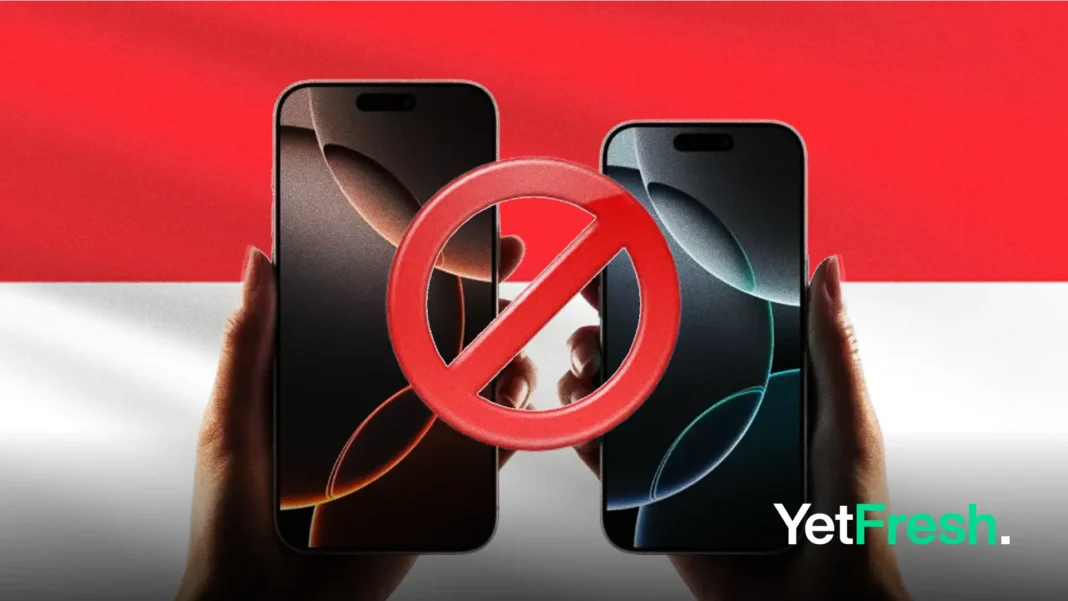No time to read? Just listen to the news!
TL;DR
- Indonesia blocks sale of Apple’s iPhone 16 due to company’s failure to meet 40% local content requirements set by the government
- PT Apple Indonesia, the local unit, has not fulfilled the domestic investment requirements, leading to the ban on marketing the latest iPhone models
- Older iPhone models can still be sold in Indonesia, as the ban specifically targets the iPhone 16 launched in September 2024
- The move reflects Indonesia’s policy of using trade restrictions to encourage foreign companies to increase domestic production and investment
Indonesia has barred Apple Inc. from selling its latest iPhone 16 models in the country. The Indonesian government cited the tech giant’s failure to meet local investment requirements as the reason for the ban.
The Ministry of Industry announced on October 25, 2024, that PT Apple Indonesia, the company’s local unit, has not fulfilled the country’s 40% domestic content requirement for smartphones and tablets. This regulation, introduced in 2017, mandates that foreign companies either source a significant portion of their components locally or make equivalent investments in the country.
Industry Minister Agus Gumiwang Kartasasmita stated, “If any iPhone 16 is operating in Indonesia, I can say that it is illegal. Report it to us.” The minister revealed that Apple’s current investment in Indonesia falls short by 240 billion rupiah (approximately $15.3 million) of the required 1.71 trillion rupiah ($108.9 million) needed for the license to sell the new iPhone series.
While the ban specifically targets the iPhone 16 models launched in September 2024, it’s important to note that Apple’s older products remain unaffected and can still be sold in Indonesia. The government’s decision reflects its long-standing policy of using trade restrictions to encourage foreign companies to increase their domestic production and investment.
Indonesia, with its population of over 270 million and growing tech-savvy demographic, represents a significant potential market for smartphone manufacturers. The country has over 350 million active mobile phones, surpassing its population, according to government data.
Apple has previously faced similar challenges in Indonesia. In 2016, the company failed to meet a 30% local content requirement for its iPhone 6, resulting in a temporary sales ban. To address this, Apple committed to investing around $44 million in a research and development center, which eventually allowed them to sell the iPhone 7 in the country.
The current situation highlights the delicate balance multinational companies must maintain between global operations and local regulations. Apple CEO Tim Cook visited Indonesia in April 2024 and expressed interest in exploring the possibility of building a manufacturing facility in the country. However, the recent ban suggests that progress on this front has been slower than the Indonesian government expected.
Industry experts are closely watching how this development might impact Apple’s strategy in Southeast Asia, especially as the company faces challenges in other key markets like China. The ban could potentially open opportunities for Apple’s competitors, such as Samsung and Xiaomi, who have already established manufacturing facilities in Indonesia to comply with local regulations.
As the situation unfolds, it remains to be seen how Apple will respond to Indonesia’s demands and whether a resolution can be reached to allow the sale of the iPhone 16 in this crucial market.
Source: Bloomberg




